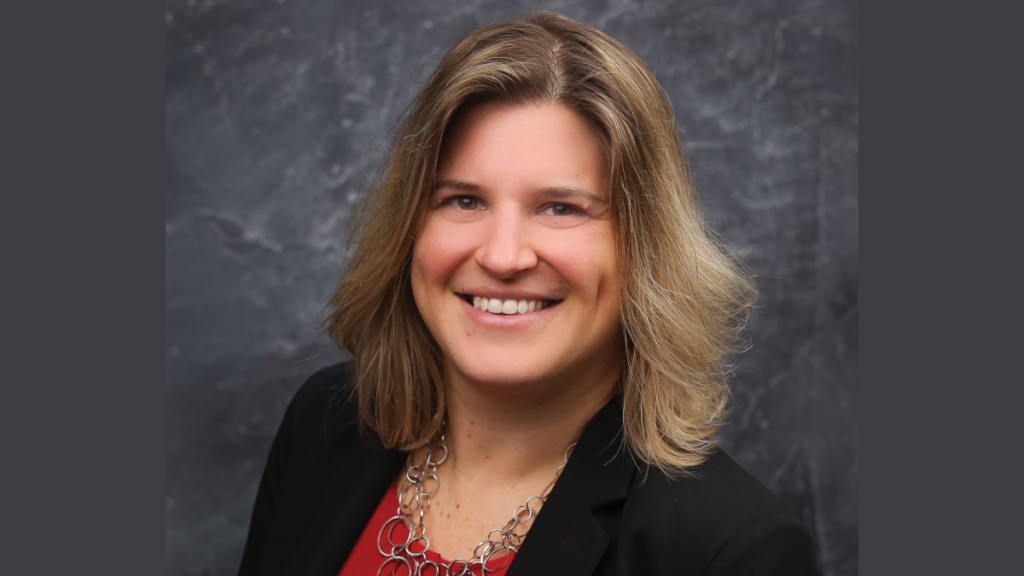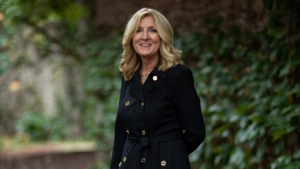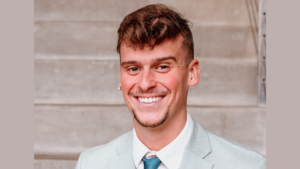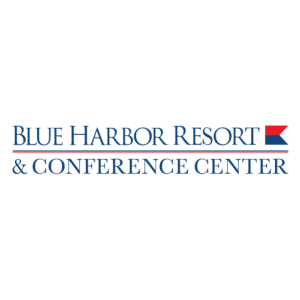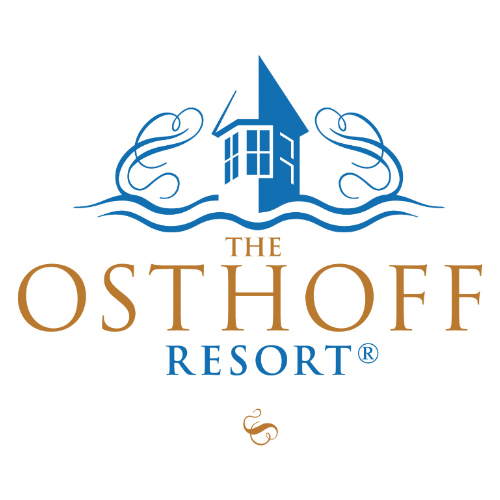Experience Leads To Better Partnerships
01/28/2022
By Carrie Mantey
Acting on a suggestion from a friend, Alison Huber, current manager of travel and events at public accounting and consulting firm Baker Tilly, embarked on an event management program at Madison Area Technical College (now Madison College). She graduated in 2006. In 2009, she earned her Certified Meeting Professional designation and has since served in many roles for Meeting Professionals International, both internationally and for the Wisconsin Chapter, with seven years of board service, including as president.
“My career has actually come full circle, as I started at Virchow Krause (now Baker Tilly) in April 2006 as a training coordinator. Between leaving Virchow Krause and joining the Baker Tilly team in May 2021, I held various planning positions for Wisconsin-based associations, served as a sales manager for the Wisconsin Dells Visitor & Convention Bureau, spent time in association management and most recently worked for Fox World Travel as a program manager. In my current role, I oversee the corporate travel program and team, and am working to build our events team.”
“The variety of roles has been incredibly beneficial to my career,” acknowledges Huber. “They each made me a more well-rounded professional, being able to understand what it is like to work as both a supplier and planner, and more empathetic in working with clients and vendors.”
Because Huber’s role of travel and events manager is new to the firm, she has been working to determine how the events team will operate, while also staying busy planning various Baker Tilly events, including two large virtual events, some board meetings and a 550-person hybrid event (scheduled for early January) that flipped to virtual 12 hours before her flight departed for Las Vegas.
COVID-19 COMPLICATIONS
One of the biggest obstacles that planners, most with a few years of experience coexisting with COVID-19 now, are dealing with is uncertainty. Not only are they having to keep a pulse on pandemic sentiment and restrictions, but they’re also having to worry about whether they have enough support for their events during the labor shortage. Due to compression in the event market (from so many postponed events in 2020 and 2021), securing venue space and the appropriate staffing can be onerous.
“The fear of the unknown is the biggest piece,” Huber admits. “Just when we think we are turning the corner, a new variant knocks us back. Planners want to give more space for social distancing in their meeting rooms, but venues want to fill the space to previous capacities. Planners want to have meals served, but that affects the number of staff needed. You can get space and guestrooms, but will there be restaurants open for your attendees? The labor situation is something that needs to be considered. I work hard to be compassionate with my venue partners, and also ensure that my internal clients understand that it is a different climate and we need to be realistic.”
To help combat uncertainty, Huber says meeting and event planners are also diversifying their skills to get more done in different ways: “From COVID officers to virtual and hybrid meeting experts, planners have had to add many skills. This year was a challenge in making last- minute adjustments to attendance protocols, ensuring the safety and comfort of our attendees, and working to understand and produce engaging and successful virtual, in-person and hybrid events.”
Huber says that, when it comes to putting on a hybrid event, stakeholders need to be educated on “how virtual platforms and mobile apps can help achieve our goals, and on the nuances of hybrid and virtual events, getting them to understand we need to adjust our presentations to engage both virtual and in-person audiences.”
Although digital and hybrid formats are high on the priority list now, Huber concludes, “Attendees are mostly ready to get back to in-person meetings. Planners and suppliers alike need to continue to have grace with one another as mandates, attendance counts, social distancing, etc. continue to adjust. We must remember that we need to continue to build strong partnerships and support each other to move forward.”

